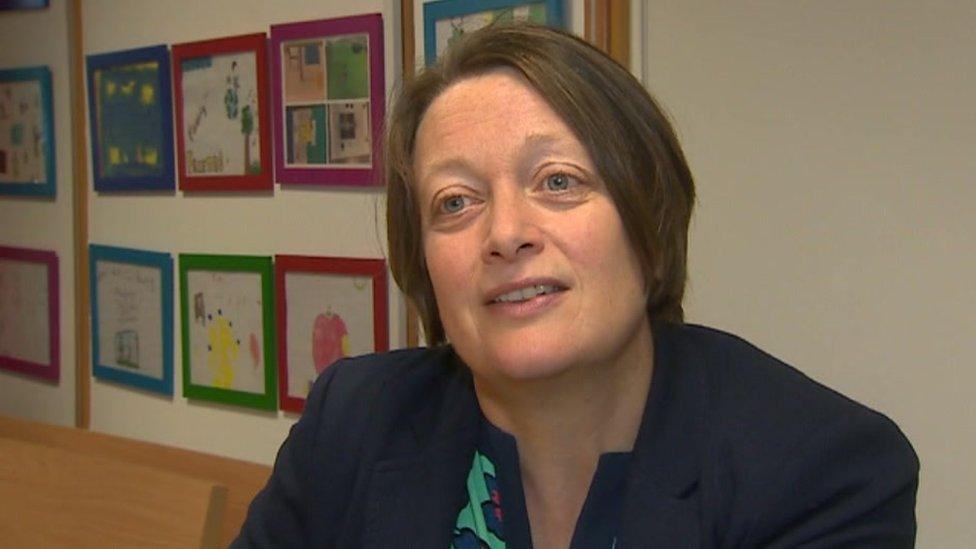New law plan for children with learning needs in Wales
- Published

Alun Davies says everyone in Wales should be able to access education that meets their needs
The way children with additional learning needs are treated will change under new laws set to be unveiled.
The Welsh Government says it wants to improve exam results and aspirations of those who need extra support.
Lifelong Learning Minister Alun Davies has said the current system is "no longer fit for purpose".
But some teaching unions have said they have "serious concerns" about the new bill and are waiting to see the full details of the planned legislation.
If passed, the Additional Learning Needs and Educational Tribunal (ALNET) Bill could come into force by 2019.
Last year, 23% of pupils with ALNs achieved five GCSEs compared with 59% of all pupils in Wales.
In September, the Children's Commissioner for Wales criticised the current process for assessing children with ALNs and said the planned new legislation was "a one in a generation opportunity".
As part of the bill, a single system - called an individual development plan - will replace "statements" which currently address the needs of an individual aged up to 25.
The bill would also replace two terms known as "special educational needs" and "learning difficulties and/or disabilities", from which the current "statements" take their names.
Nearly a quarter of learners in Wales experience some form of additional learning need during their early years or education, according to the Welsh Government.


Bill outlined
Introduces the term Additional Learning Needs for children and young people aged 0 to 25, "ensuring equity of rights and improved transition between settings"
A single statutory plan - the individual development plan
Increases the participation of children and young people, ensuring they are at the centre of the planning and decision-making process
Prioritises high aspirations and improving outcomes, focusing on the child or young person's achievement of their full potential
Provides a simpler and less adversarial process, ensuring learners' needs are at the centre and are continually met
Creates new statutory roles within health and education to ensure collaboration and integration and that learners' needs are met
Focuses on earlier disagreement resolution, with disagreements resolved at the most local level possible
Introduces clear and consistent rights of appeal to the Education Tribunal where disagreements cannot be resolved at a local level
Source: Welsh Government

However, following the draft consultation on the new laws over the summer, several teaching unions flagged worries about the legislation.
A joint statement, external by the ATL, NAHT Cymru, UCAC and UCU unions said ALN "must be properly funded, with prevention of cuts by local authorities to ALN budgets".
The unions also demanded that educational establishments must have access to specialist services, such as psychologists and speech therapists, and that the all-important assessment process was made clear.
UCAC said it welcomed the bill in general but wanted more assurances for Welsh speaking pupils.
Plaid Cymru education spokesman Llyr Gruffydd welcomed the bill and said his party would "work to ensure it offers the strongest possible support" for children and young people with additional learning needs in Wales.
He added: "The current system for supporting those with special educational needs is based on a model that was introduced over 30 years ago. It's no longer fit for purpose and reform is long overdue."
Darren Millar of the Welsh Conservatives said his party also welcomed the bill, saying: "We look forward to scrutinising the legislation to ensure that it addresses key concerns around staffing capacity, finances and access to professionals for those who need them."
- Published23 September 2016
